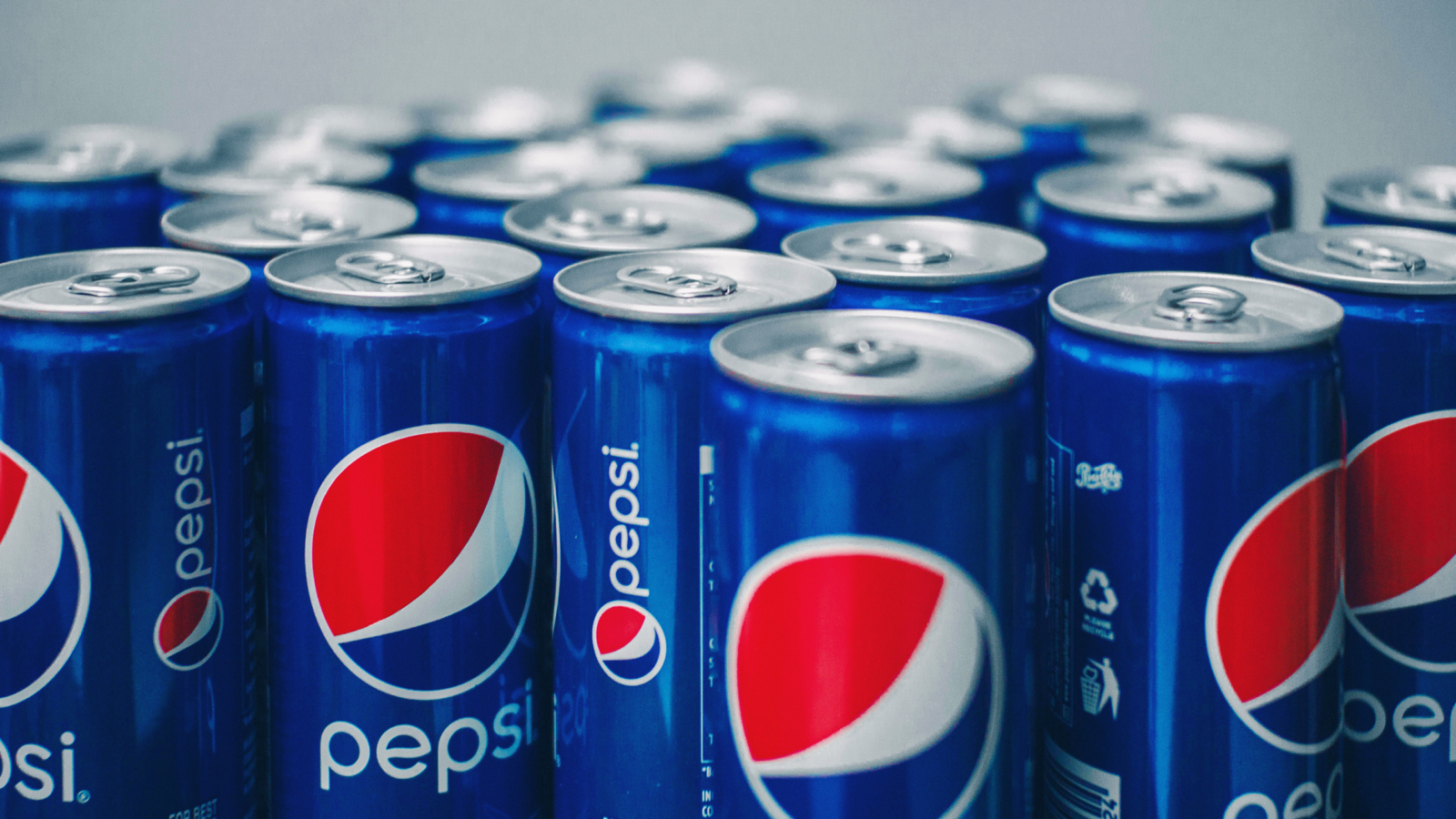Good morning and happy Friday.
As if Brits need any more reason to root for their football team.
On Sunday, the England national football team will take on its Spanish counterpart in the final of the European Football Championship. Newly-elected UK prime minister Keir Starmer, a fanatical Arsenal supporter, hinted the government might declare a bank holiday on Monday if the Three Lions outlast favored Spain. Back in 2010, the government estimated a bank holiday costs the economy £2.9 billion, but with pubs allowed to stay open for an extra two hours during the final, we’re guessing it will all even out.
Hope for Rate Cuts Gets a Big Boost from Slowing Inflation

Nothing like a little disinflation to make investors feel less deflated about what the Fed might have in store for us.
The US economy got a jolt of good news Thursday when the Labor Department reported that monthly inflation fell in June, strengthening the case for the Federal Reserve to cut interest rates in the coming months.
The Rating Game
The consumer price index (CPI), a broad measure of the cost of US goods and services, decreased by 0.1% from May, pulling the annual inflation rate down with it to 3%. “Core” CPI — which strips out volatile energy and food prices and is closely watched by Wall Street — rose 0.1% from May and 3.3% annually for its slowest pace since August 2021.
Coupled with the slowing labor market that Federal Reserve Chair Jerome Powell flagged before Congress earlier this week, the inflation data suggests interest rates, currently nestled at a 23-year high, could finally be in line for cuts. Indeed, investors are pricing in an 85% chance of a rate cut in September, according to CME Group’s FedWatch. Companies and consumers alike could benefit:
- PepsiCo executives said Thursday that sales volume at their Frito-Lay North America division fell 4% in the latest quarter due to a “cohort of consumers that have become more price conscious” amid inflationary pressure. PepsiCo missed its revenue expectations for only the second time since 2017, with the results suggesting that hiking prices — PepsiCo’s were upped 5% overall in the quarter — is no longer a silver bullet.
- The cooling inflation helped push down US Treasury bond yields, with investors revising their interest-rate forecasts. Lower yields can benefit consumers because mortgage and credit card rates are frequently tied to the 10-year yield, which fell 9.5 basis points to a four-month low.
Low Tech: Lower inflation and lower interest rates could unlock value for undervalued or struggling stocks, and that prospect was enough to sting the Big Tech firms that have led the markets in recent years. The small- and medium-cap Russell 2000 rose 3.3% to a three-month high, but the S&P 500 and Nasdaq dipped slightly as investors rotated out of firms like Meta (down 4% Thursday), Nvidia (down 5.5%), and Microsoft (down 2%).
The Lithium Boom

It takes 10,000 iPhone batteries worth of lithium to make 1 EV. With 350M+ EV sales projected by 2030, lithium demand will soar – and current extraction methods can’t meet it.
So when EnergyX revealed their technology extracts up to 300% more than traditional methods, investors everywhere took note.
They’ve secured a $90M+ in investment from GM and others and acquired a 90,000-acre Chilean mining asset with ~5.5M tons of lithium. Most recently they announced Project Lonestar, a commercial US lithium plant supported by a $5M DOE grant with target production of 25,000 tons/yr.
Now, for a limited time, EnergyX invites you to join them as a shareholder.*
Apple and the EU Actually Agree on Something
The EU’s anti-Big Tech blitzkrieg continues, though its latest victory may be in name only.
On Thursday, the European Commission announced that it had reached an agreement with Apple that the iPhone giant will no longer box out third-party touch-and-go payment apps. It’s a continuation of the EU’s mission to take ever more bricks out of Apple’s garden wall — though, given Apple now enjoys the kind of market dominance that its walled-garden approach was meant to foster, maybe it’s not such a big concession after all.
Bites Out of the Apple
Deploying the relatively newly minted Digital Markets Act (DMA), the EU has opened a clutch of cases against tech giants including Apple. The agreement established on Thursday, however, is part of an antitrust investigation that dates back to 2020, before the DMA, and targets one small part of Apple’s famous “walled garden” approach — i.e., the fact it tries to make sure its devices only allow or work with its own services and products.
The EU has been putting dents in Apple’s walled garden for a while now, so the tech giant may have simply chosen its battle. Wedbush analyst Dan Ives told The Daily Upside that laying down arms in this particular antitrust fight is the right decision for Apple:
- “There are a lot of regulatory speed bumps ahead in Europe for Big Tech, and this is a smart move for Apple,” Ives said, adding, “This was a step forward for Apple and it removes an overhang as Cupertino moves forward on this path.”
- Apple has simultaneously been gently backing away from its offerings in financial services. Last month, it scrapped a short-lived “buy now, pay later” product, and at the end of last year it de-coupled itself from its credit card partnership with Goldman Sachs, so a concession on Apple Pay is not one that massively upsets its current business plan.
Regulatory Dodgeball: Apple already showed signs of regulation prevention this week when it gently sidestepped joining OpenAI’s board after originally being expected to take on an observer seat, given the company’s partnership with the AI juggernaut.
NFL Moves Toward Allowing Private Equity into Ownership Groups
NFL team owners are looking to add depth to their financial bench.
At the Sun Valley conference on Thursday, commissioner Roger Goodell said the league is en route to allowing PE groups to take ownership stakes in franchises. It’s less of a Hail Mary and more of a no-brainer.
Bend Don’t Break
The NBA, NHL, MLB, and MLS have all already opened the doors to PE team ownership, with each respective league allowing firms to own up to 30% of a franchise. The NFL — which Goodell said is likely to allow only a 10% ownership stake in its teams — is in some ways the league for which allowing PE groups is most essential.
That’s because team valuations — across all leagues — have skyrocketed as live sports become one of the most valuable cornerstones in the media landscape. For instance, the NBA, which routinely draws just a fraction of the ratings that the NFL does, finalized an 11-year broadcast deal reportedly worth $76 billion this week. The going rate for a pro sports team is now so expensive that there are vanishingly few individuals in the world willing to buy a team all on their own:
- Last year, Apollo Management co-founder Josh Harris bought the Washington Commanders for $6.05 billion, the highest price tag in the history of North American sports. To do so, Harris had to assemble an ownership group of 20 other minority owners, in part because league rules allow new owners to only take on up to $1.2 billion in an acquisition (NFL owners have since agreed to raise the debt limit to $1.4 billion).
- “Unless you’re one of the wealthiest 50 people [in the world], writing a $5 billion equity check is pretty hard for anyone,” Harris said in an interview with Andrew Ross Sorkin at a conference earlier this year.
First and Goal: Small minority stakes in sports franchises come with little, if any, actual decision-making power. For the PE industry, which may be sitting on as much as $2.5 trillion in dry powder, that means NFL ownership is something of a passive investment. But likely a good one. While the league has long dominated culture in the US, it has relatively little international footprint. That could soon change, and a recent landmark streaming deal to place Christmas Day NFL games on Netflix may be why. “Netflix has close to 300 million subscribers on a global basis, which was really attractive for us in being able to reach that global fan. International is a huge initiative of ours,” Goodell also said on Thursday. In other words: In a few years’ time, Sunday may mark football night in America — and everywhere else.
Extra Upside
- Bain Gain: Bain Capital buys wealth management software firm Envestnet for $4.5 billion.
- Claw game: IRS claws back $1 billion in unpaid taxes from high-earning individuals.
- Want to Achieve Success in Your Career? Surround Yourself With It. You could spend a decade building a network of Fortune 500 leaders and groundbreaking start-up CEOs, or you could apply to join Sidebar’s curated leadership program and level up your career in minutes.**
** Partner
Just For Fun
Disclaimer
*This is a paid advertisement for EnergyX’s Regulation A+ Offering. Please read the offering circular at invest.energyx.com/.

